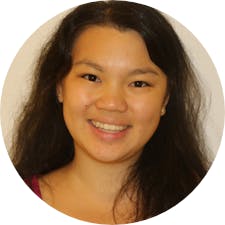One Saturday night, a friend is in my room to chill for a bit before going to "Kappa probate."
After answering my confusion over which Kappa she’s talking about (hint: NPHC, not Panhel), she explains what the event is. She and my roommate encourage me to check the probate out if I’m interested. Instead, I join another group of friends to head over to what could generously be described as a party.
It’s about 10 p.m. at this point. Standing outside my room, on the main quad, another friend I'm with asks "Hey, what's going on in front of the Chapel? Let's go check it out."
I struggle to come up with the name—“Someone was just in my room who wanted to go there!”—but eventually produce the name “Kappa probate,” adding that it’s an event for one of the Black fraternities.
"Ew no, I don't want to go to that."
At this point, I debated whether I wanted to say something. Because within less than 20 minutes, around two different groups I considered friends, I had heard both enthusiasm and disgust about the same event, and I didn’t think it fair not to say something. But it was also a Saturday night, I was going to spend an entire night with these friends and didn’t need to stir up any conflict, and it was really, really cold ou—
Before all these thoughts had gone through my head, the window for me to have said something had already passed. All it would have taken was a quick "Hey, that's not cool," or "What's wrong with that?" These were friends I should have been comfortable enough to say such things around.
But looking back, I’m not sure if I could have realistically expected myself to have said anything. Sure, the main quad on a freezing Saturday right before a party was not the best environment to bring up this concern, but even had the environment been right, I didn’t have the familiarity with Black Greek life to articulate what was wrong.
On another Friday night, two of my friends who had only briefly met before were sitting on the floor in my room talking. Somehow the conversation moved to students with disabilities and the accommodations for them at Duke. One of my friends was struggling to find the right word to describe disability—is saying impaired offensive? Is differently-abled the right word?
It was midnight, but none of us had plans for the rest of the night. It was not cold nor windy, and there was plenty of time to work around awkward wordings. We understood his point, and the conversation moved on.
Later, my friend confessed, "I don't know. It's really difficult for me to talk about disability issues, because I’m just so not used to it."
I don’t hear this kind of confession often, and I wish I did. I wish there were more time that Saturday for me to speak up, for me to find the right words. I wish that kind of space and room for mistakes was welcome and present.
This semester, I'm taking my first sociology class, where I find myself reading and processing words and concepts that I had previously never heard. And the first time I wrote and spoke and parroted the concepts, they felt foreign.
That was not the case for others in my class. Maram Elnagheeb, in a column a few weeks ago, criticized her peers for pretending to be liberal by simply reading and parroting an ideology presented to them in class, while their original thoughts, particularly on social issues, may contradict some of those beliefs.
I don’t know how many original thoughts I have yet, but in the process of developing them, I do expect there to be some contradictions. In the process of clarifying my viewpoints, it’s likely that I will mess up, that the words won’t come out right, that there will be contradictions in my belief system. Because just as comforting friends becomes easier and easier the more it is done, the more that we mess up and stumble through unfamiliar topics, the more these conversations on tough topics can emerge.
This isn't an explicit plea for or against politically correct language (though if you’re going to talk about a topic, ideally you should know the history of its vocabulary). Rather, it is a reminder that we should consider the way we want to talk about issues, so that when the time comes again, we can get across the message that we want to convey. And the only way to talk about topics that may be uncomfortable is by… talking about them.
Where is the space for those conversations, and where is the time? Certain courses may offer that space, but how many people take a class in Sociology, African and African American Studies (AAAS), or Gender, Sexuality, and Feminist Studies (GSF)? What other classes and fields offer environments in which identity and lived experiences are so important? And perhaps a dorm room on a Friday night can occasionally serve as that space, even if it is incredibly difficult to create with intention.
But just because these conversations and environments are difficult to create and engage with doesn’t mean we shouldn’t try. What's important is having these conversations, hard as they might be, so that they eventually get easier. Most of us are probably at Duke because we wanted a challenge- this is an additional one. Because, what are the consequences of living in a world where some ideas are so foreign that they can’t even be discussed? And what will our society look like if people are unwilling to engage in challenging conversations?
I don't know. Maybe we should talk about it.
Amy Fan is a Trinity sophomore. Her column, "fangirling," runs on alternate Wednesdays.
Get The Chronicle straight to your inbox
Signup for our weekly newsletter. Cancel at any time.

Amy Fan is a Trinity senior. Her column, "fangirling," runs on alternate Thursdays.
